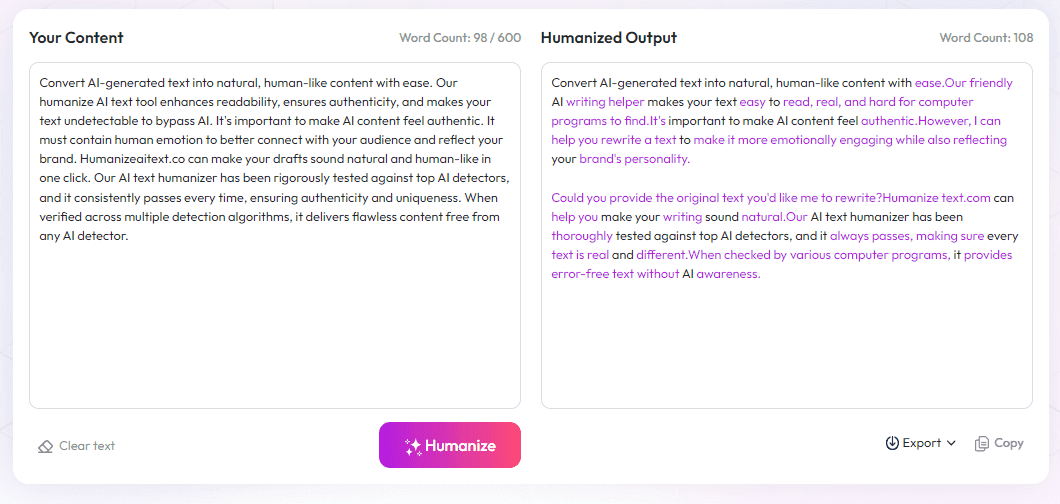Table of Contents
Struggling to find a way to make beta reader agreements simple and stress-free? You're not alone—lots of writers get stuck on how to create a clear contract that protects everyone. But don't worry, if you keep reading, you'll learn how to find and use a free beta reader contract template that actually works for you.
In this quick guide, I'll share tips for choosing the right one, what it should include, and easy steps to fill it out. Plus, you'll get ideas for sharing and working through the contract smoothly. By the end, you'll be ready to get those beta readers on board with confidence!
Key Takeaways
Key Takeaways
- Use a free beta reader contract template to make collaborations clear and protect your work. It should explain expectations, confidentiality, deadlines, and payment if applicable. Find a simple, adaptable template from trusted writing sites or communities.
- Customize the template with your project details and keep language friendly to encourage cooperation. Adding a basic NDA can provide extra legal protection if needed. Always use recent templates to stay updated on best practices.
- Most beta readers don’t sign formal contracts, but having an agreement can help if your project is sensitive. Whether or not to use a signed document depends on your comfort level and the confidentiality of your work.
- Offer clear guidance on feedback deadlines and format, and thank your beta readers for their time. Good communication and organization make the process smoother and more professional.
- If you pay beta readers, typical rates range from $75 to $150 depending on project length and experience. Use safe payment methods like PayPal or Venmo and be transparent about your compensation to avoid misunderstandings.
- Consider optional NDAs for cases involving sensitive material, especially if you're sharing early drafts publicly or with multiple readers. Simple, clear NDAs set boundaries and show professionalism.
- Handling negative or conflicting feedback is part of the process. Stay objective, thank honest reviewers, and decide what feedback aligns with your vision. Not all comments need to be followed, but patterns can reveal useful insights.
- Offer alternative incentives beyond payment, like free copies, acknowledgments, or early access, to motivate volunteers. Personal touches help maintain good relationships and encourage quality feedback.
- Keep communication friendly and organized, set clear expectations upfront, and show appreciation to foster a positive, professional working relationship with your beta readers.

Finding a reliable, free beta reader contract template is often the first step for new authors looking to formalize their feedback process while protecting their work. A good template clearly outlines expectations, confidentiality, compensation (if any), and legal protections, making the partnership smooth and professional. The goal is to choose a template that’s straightforward, adaptable, and easy to understand, so you don’t end up with a contract that confuses or discourages your beta readers.
Start your search by visiting reputable writing communities or websites that offer free resources for authors—these are often the most trustworthy sources. For example, websites like how to be a beta reader provide guidance and sometimes downloadable templates crafted specifically for this purpose. You might also find templates on platforms like AutoCrit or writing forums where experienced authors share their contract samples.
When evaluating a free beta reader contract template, ensure it covers the essentials: an overview of the project, the scope of feedback, confidentiality clauses, deadlines, and any compensation details if applicable. While most beta readers are volunteers, some authors offer incentives—whether monetary, free copies of the book, or other perks—so it helps to have a flexible template that accommodates these variations.
Remember, the best templates are customizable. Once you find a template that fits, tweak the language to reflect your specific project and relationship style. Keep language simple and friendly—this encourages cooperation, especially with volunteers who are giving their time without strict legal obligation. For those interested in setting more professional boundaries, consider including a simple NDA, which can often be found as part of the template or added separately.
Lastly, ensure your chosen template is recent and relevant. The legal landscape around contracts and confidentiality agreements evolves, and new best practices emerge regularly. You might want to review the how to write a foreword guide for additional tips on drafting compelling, clear agreements that set the tone for professional collaborations.
What a Beta Reader Contract Should Include
A solid beta reader contract should explicitly state the purpose of the review, the scope of feedback, confidentiality terms, deadlines, and any compensation if being offered. It’s also helpful to specify whether the beta reader can share the manuscript or feedback with others, and if the author retains all rights to the work. Including these elements clarifies expectations and protects both parties from misunderstandings down the line.
Steps to Fill Out Your Beta Reader Contract Template
Start by reading through the entire template carefully, highlighting any sections that require customization. Next, insert your specific project details—such as the title, author name, and project scope—in the designated areas. Clearly define deadlines for feedback and specify the format in which you want feedback (e.g., comments, tracked changes).
If you’re offering compensation, outline the payment method and timeframe—whether via PayPal, Venmo, or another service. Make sure to also include any confidentiality clauses, and review or modify language about rights and sharing of feedback. Once you've tailored the contract, review it to ensure clarity and fairness, and then prepare to share it with your beta readers for signature or agreement.

7. Common Payment Structures and Rates for Beta Readers
While many beta readers volunteer their time, paying for detailed feedback is becoming more common, especially for longer or more complex projects.
Typical payment rates can range from $0 (for volunteers) up to $150 per manuscript, with experienced beta readers earning between $0.01 and $0.03 per word.
Authors often pay around $75 for a standard manuscript review, but if your book is around 140,000 words or more, payments over $100 aren’t unusual.
Popular payment methods include PayPal, Venmo, Zelle, or Cash App—pick what fastest works for both parties.
Offering fair compensation can attract more thorough and insightful feedback, making your story stronger and saving you time during revisions.
Remember, clear communication about payment expectations upfront prevents misunderstandings and helps keep the relationship professional.
8. When and Why to Use a Non-Disclosure Agreement (NDA) with Beta Readers
Most authors use optional NDAs to protect their work, especially if their manuscript contains sensitive or unpublished material.
An NDA is a simple contract that states beta readers can’t share or publish your work without permission.
You don’t always need an NDA, especially if your feedback process is informal, but for higher-stakes projects, it offers extra peace of mind.
Many authors prefer a straightforward, one-page NDA, which you can create yourself or find templates online—just ensure it’s clear and easy to understand.
If your beta readers are minors, consider requiring a parental signature to comply with legal standards.
Using an NDA signals professionalism and helps set boundaries early, especially if you’re sharing unpublished work with multiple readers or in a public group.
9. Do Beta Readers Usually Sign Contracts or NDAs? What the Norm Is
According to discussions in places like Goodreads, most beta readers don’t sign formal contracts—many just trust the author and have an understanding.
Copyright law generally protects your work without a signed contract, so many authors operate on mutual trust rather than legal paperwork.
However, for authors working on sensitive projects or planning to publish commercially, having a signed NDA or contract can help clarify expectations.
Providing an optional agreement can also encourage more serious feedback and demonstrate professionalism, especially if you’re paying for a beta review.
Ultimately, it depends on your comfort level, the sensitivity of your manuscript, and whether you want to formalize the relationship more strongly.
10. How to Handle Disagreements or Negative Feedback from Beta Readers
Expect to receive a range of opinions—some helpful, some less so—and that’s normal.
The key is to evaluate feedback objectively and decide what aligns with your vision, rather than taking every comment personally.
If specific feedback conflicts with your intent, consider discussing it politely and explaining your reasoning—it might turn a critic into a collaborator.
Always thank your beta readers for their honesty, regardless of whether their feedback was positive or critical.
Remember, not all feedback needs to be incorporated—it’s your story, after all—but use their insights to spot patterns or recurring issues you might have overlooked.
Having a thick skin and a balanced approach makes working with beta readers more productive and less stressful.
11. Creative Ways to Incentivize Beta Readers Beyond Payment
If you’re not ready to offer cash, there are plenty of other ways to motivate your beta readers.
Offering free copies of the finished book is a popular perk—especially if it’s a self-published project.
You can also provide acknowledgment in your book or create a special thank-you note for their help.
Early access to upcoming works or exclusive behind-the-scenes updates can also foster loyalty and enthusiasm.
Some authors host contests, share exclusive content, or offer personalized feedback sessions as unique incentives.
The goal is to make your beta readers feel appreciated and involved in your journey, which encourages quality feedback and ongoing support.
12. Final Tips for Professional and Smooth Beta Reader Collaborations
Keep communication clear, friendly, and concise—set expectations early about deadlines and feedback format.
Be flexible with feedback deadlines if needed, but don’t hesitate to enforce them to keep your project moving.
Provide simple guidelines or questions to help your beta readers focus their feedback on what matters most.
Always thank your beta readers sincerely—appreciation keeps them motivated and eager to help again.
Stay organized by tracking feedback and any signed agreements in a dedicated folder or spreadsheet.
And finally, treat your beta readers with respect—they’re volunteering their time to help you, after all!
FAQs
You can find free beta reader contract templates on writing websites, author forums, or template platforms like Google Docs or Canva. Look for samples specifically tailored for beta readers to ensure they cover necessary details.
A beta reader contract should include expectations, confidentiality terms, feedback deadlines, usage rights, and any compensation or incentives offered. Clarity in these areas helps protect both parties and outlines responsibilities.
Review each section of the template carefully. Fill in details such as your name, the beta reader's name, specific feedback deadlines, and any agreed terms. Ensure both parties understand and agree before finalizing the document.
You can share your contract via email, file sharing services like Google Drive, or PDF attachments. Make sure both parties have access to review, sign, and keep a copy of the agreement for their records.



